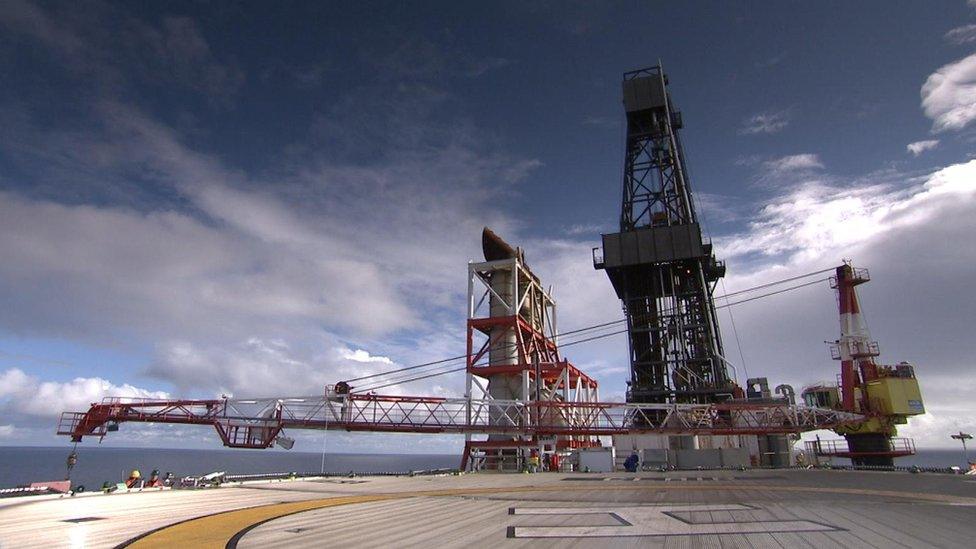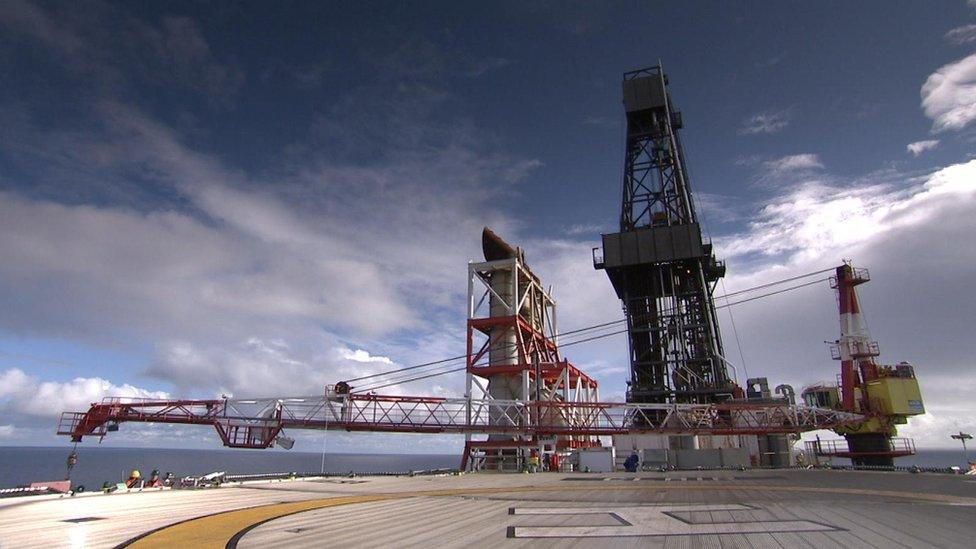Leaked BP platform oil 'moving away from land'
- Published

An oil spill of about 95 tonnes from a platform off Shetland is heading away from land, BP has said.
The energy giant said oil had been observed on the sea surface, and seemed to be moving north.
The oil was released into the water from the Clair platform on Sunday.
BP said: "At present, we believe the most appropriate response is to allow the oil to disperse naturally at sea, but contingencies for other action are being prepared."
The company added: "The most likely volume of oil to sea has been calculated from platform data as 95 tonnes.
"Both direct observation from surveillance flights and oil spill modelling continue to show the oil moving in a northerly direction away from land.
"The most recent surveillance flight already indicates significant dispersal of the oil at the surface."
'Await findings'
The Clair platform is 75km (46 miles) west of Shetland.
It was shut down after the leak.
Environment Secretary Roseanna Cunningham said: "I am closely monitoring the situation, which I understand to be the result of the rig discharging 'produced water' containing a much larger than usual amount of oil.
"The oil residue is moving away from the shore and, as such, there is a low risk to bird species at this time of year. The nearby Faroe-Shetland Sponge Belt Marine Protected Area is home to deep-water sponges 400-600m below the sea surface.
"Marine Scotland have advised that allowing the oil to weather naturally is the least harmful option for this internationally important marine habitat."
'Serious questions'
Mick Borwell, the health, safety and environment policy director at industry body Oil and Gas UK, said: "We will await the findings of the investigation and will see if there are any findings that can be shared with industry.
"However the UK oil and gas industry does it utmost to prevent accidental releases by investing heavily in a wide range of physical barriers as well as developing training and procedures that influence human behaviours.
"Every operator has emergency response plans in place and use a wide range of response techniques to monitor, contain and recover accidental releases.
"Industry takes its responsibilities towards safety and the environment extremely seriously in all its operations."
WWF Scotland director Lang Banks said: "In the interests of protecting their staff and the marine environment, serious questions need asked about how this spill occurred. Until those questions are answered the platform should remain out of operation."
- Published3 October 2016
